Announcements and Updates
Bookmark this page as your main entry point to the course website. That way, you’ll be sure to see any changes and other information I’ve posted here.
CURRENT ANNOUNCEMENTS
Grades for the course are posted on the grading page
26 December 2021
I have updated the grading page with the overall course grades based on everything I received via BlackBoard up through December 24.
The official grades will be posted to CUNYfirst on Monday night.
My heartfelt thanks again to all of you for a great semester under trying circumstances. Your hard work and enthusiasm made exploring gender in antiquity gratifying and rewarding for me and for your fellow students. I hope you got a lot out of it, and remember you can always come to me with questions or news about the ancient world. I hope to see you in another ancient history class, and, either way, that your new year is safe, healthy, and rewarding. Good luck!
ARCHIVE
Final Exam grades and markups
22 December 2021
The grades and markups for the final exams are posted.
If you have not yet submitted an assignment, or if you have reversible deductions, please make sure to upload to BlackBoard no later than Friday, Dec. 24.
Position paper grades and markups
20 December 2021
The grades and markups for the position papers are posted.
If you have not yet submitted your paper, or if you have reversible deductions, please make sure to upload to BlackBoard no later than Friday, Dec. 24.
Exams and Papers Received
18 December 2021
The grading page has been updated to show all exams and papers I have received via BlackBoard. I will be working hard over the next few days to clear all of the remaining grading and will update you as assignment and exam grades are posted.
Please take note of any written assignments I am still missing from you, as well as any reversible deductions. The absolute deadline for all late papers and reversible deduction resubmissions is Friday, December 24. Remember that incompletes will not be granted except where mutually agreed in advance of the last deadline owing to extenuating circumstances.
Final Exam Posted
11 December 2021
The final exam questions have been posted on the Final Exam page. Please watch the video for instructions. Your responses must be uploaded to BlackBoard by Friday, December 17. Good luck!
Welcome to Week 14!
6 December 2021
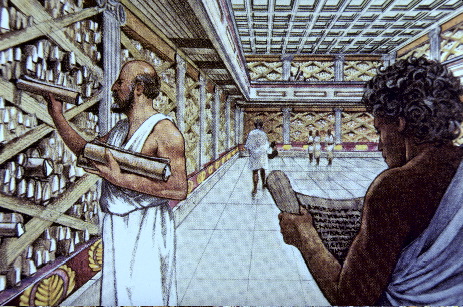
This week we’re sort of putting the Greek and Roman worlds in perspective, looking at how the Hellenistic world, which the Romans absorbed, looked at gender and the responsibilities people had as men and women toward the strength and persistence of their society. What essential ideas stand out to you about the complementary roles of men and women in the Hellenistic world? How much of that carried over to the Greco-Roman world that came after?
Also this week you’re completing your position papers. What did you learn from your research and analysis that you’d like to share with the rest of us? How has your perspective on gender in the ancient world changed or been reaffirmed as you explored your topic?
Looking forward to discussing all this with you on Friday. This is our last chance to work together to make sense of the complex story of gender in the ancient world, so come to class with questions and your own insights into what we’ve been exploring this semester. See you there!
Review Sheet Posted
4 December 2021
The final exam review sheet has been posted on the Final Exam page.
On this page you’ll find information about the final and review materials. This is also where the final exam itself will be posted. The exam will be posted on December 11, after our last class, and must be posted to BlackBoard no later than Friday, December 17.
The review sheet is not designed to be a list of answers so much as questions you can use to guide you toward the areas you want to focus on in your review. As you read through the questions on the review sheet, those you have a sense of how you might answer are lower priority for review than those questions you’re not sure how you would answer; those you’d then want to go back and spend some time reviewing in your notes, the readings, the videos, quiz notes, and class discussions.
Also note that the terms are a useful way of finding concepts you need to go back and review, so I’d advise stepping through the terms at the end of each topic and making sure you have a sense of what they mean and why we’re studying them.
To prepare for the essays, I suggest that you focus on what you would consider to be four or five of the major themes of this course, and think about possible questions that relate to those topics across the periods and transitions we’ve explored. For the essay you’ll be asked to give three examples, so you can sketch out a question about a recurring topic in the course, your perspective on that question, and three similar or contrasting examples of that demonstrate that perspective.
Please take a look at the review sheet for details on the exam’s content and structure. The Overview and Instructions video sets out my requirements and expectations. Once you’ve read through the review sheet and seen the video, if you have any questions about the exam or about any of the topics covered in it, please don’t hesitate to come to me.
To get to the final exam page, go to the course website and click on “Final” in the navigation index, or follow the link to the “Final Exam page” post on the Announcements page.
Important upcoming dates
29 November 2021
Please make note of the following upcoming dates for this course:
- Saturday, December 4 — Final exam review sheet posted on the Final Exam page.
- Friday, December 10 — Last class meeting. Position Paper due.
- Saturday, December 11 — Final exam posted on the Final Exam page.
- Friday, December 17 — Final exam responses must be posted to BlackBoard no later than this date. No late exams will be accepted.
- Friday, December 24 — Absolute deadline for all late essays, papers, and presentation write-ups. No submissions will be accepted after this date.
- Monday, December 27 — Rosters posted to CUNYfirst.
Please note that, per the syllabus, I do not give incompletes unless the grounds for extending one are discussed and agreed between myself and the student prior to the final course deadline.
Reminder: The Position Paper is due Friday, December 10
29 November 2021
Here are a few brief reminders about the Position Paper, which is due very soon on Friday, December 10.
Watch the video. Make sure to watch the overview video, since that tells you exactly what I am looking for. It’s on the Position Paper page.
Thesis statement. Make sure you have an introduction with a thesis statement (your argument asserting your position on the question/problem being addressed) and a body that described and discusses three examples from the sources supporting your thesis statement. For models and explanations on how to do this, see “Writing a Position Paper” (a.k.a. “The Elephant Pamphlet”), which is on the Resources page.
Sources.
- You must use at least three sources, which can be primary or secondary; tertiary sources (including textbooks and most web pages) are not allowed. See the Sources handout on the Resources page for more.
- All assertions must be supported by evidence.
Requirements for all papers. You must adhere to the requirements for all papers (listed on the Essay Musts page). Not meeting the requirements for all papers will mean a lower grade.
Template. There is an MS Word template already set up with some of the formatting I require on the Resources page. If you use Word I strongly recommend making use of this template.
Late papers. As per the syllabus, late papers are marked down by ten points per class meeting, up to a cap of thirty points. Avoid this penalty and block out the time you need to prepare, write, and review your paper so that it can be submitted on time.
BlackBoard. All essays are uploaded to BlackBoard. Look for “Upload Assignments Here” in the left-hand menu. Your essay needs to be uploaded as a Word (preferred) or PDF file attachment, not pasted in as text submission. If you use a browser-based word processor, download or export to a Word document and upload that.
I’m happy to discuss any aspects of your sources or the paper, so please come to me if there’s anything you’re not sure about. I’m looking forward to hearing your interpretations of your chosen depictions of the ancient world!
Welcome to Week 13!
29 November 2021
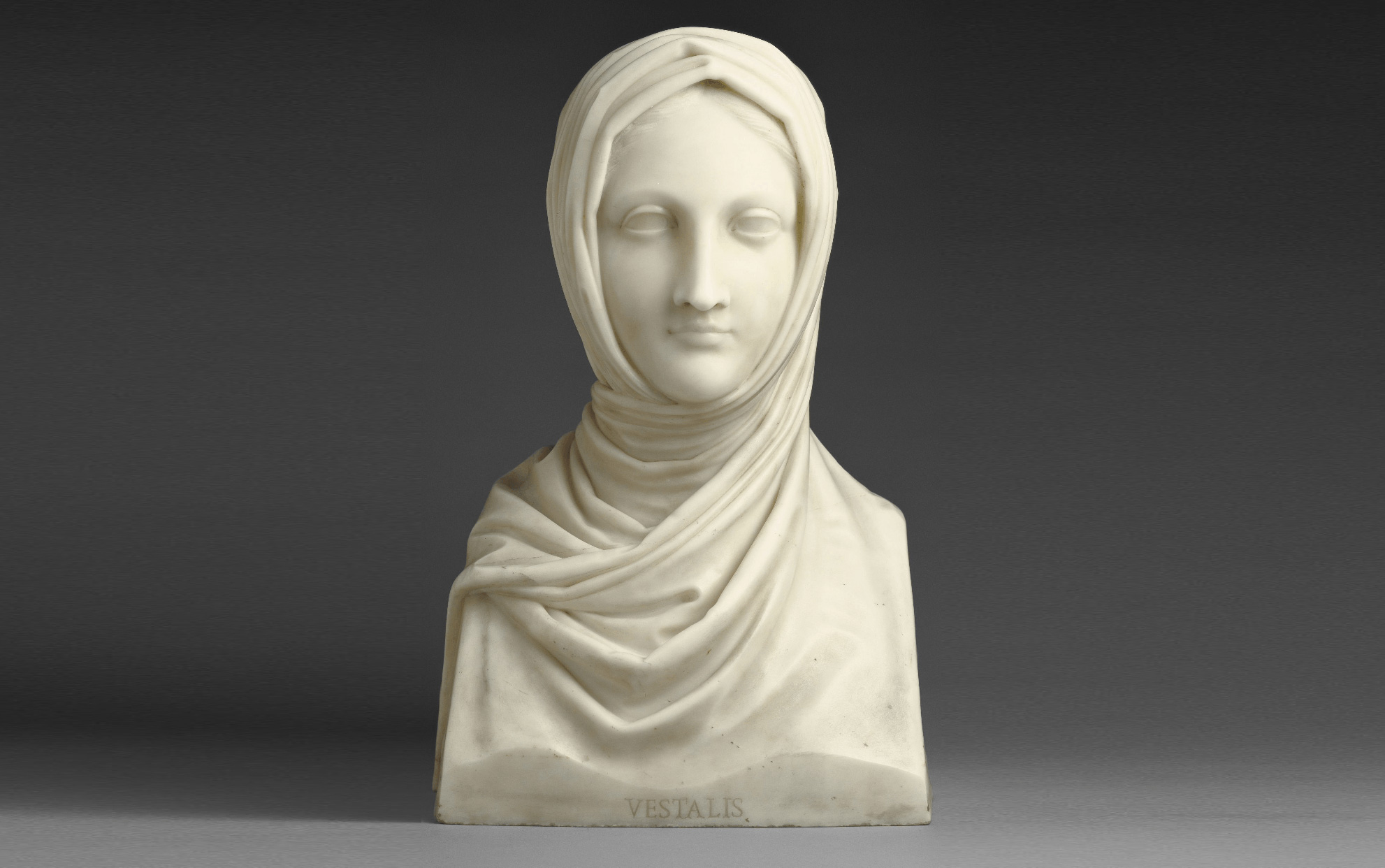
This week we’re discussing the ways in which women were involved the Roman religion. The religious practices and superstitions of the Romans themselves are interestingly peculiar, and the special cult of priestesses known as the Vestal Virgins, who were entrusted with the guardianship of the eternal flame, is distinctive. What do you think the existence and importance of the Vestals tells us about how the Romans thought about gender and the gods? The Chief Vestal is an unusual figure, too, representing the pure separateness of the Vestals and the status and responsibilities of a Roman noble matron. What else strikes you as telling about the prominence of women in Roman religion?
Personal letters are a great resource for historians because they offer a subjective, unguarded, and first-hand view of cultural norms and idiosyncratic relations to them. What stands out to you from Pliny’s letters about how he talks about women he admires?
Finally, Cato’s speech on the Oppian Law is in defense of conservative values, but it has an impact on wealthy women in Rome, who had been agitating politically to wear ornamentations again, even appearing in mass demonstrations in the Forum. What’s Cato afraid of?
Looking forward to discussing all of this with you in person on Friday. See you then!
Courses in Ancient History, Spring 2022
22 November
WINTER 2022 (Jan. 3-23)
Civilizations of the Ancient World
HIS 246-JA01 (46161)
Online-Synchronous – MoTuWeThFr 9:30AM-10:45AM
Prof. Mark Wilson
A survey of the Mediterranean world, beginning with the first humans and tracing the development of civilization from Mesopotamia and Egypt to ancient Greek City-States and the fall of Rome.
SPRING 2022 (Jan. 28-May 24)
Women in Antiquity
HIA 311-XT81 (50985)
HIA 750-XT81 (51065)
WST 311-H81 (58740)
In Person – Tu 6:00PM-8:40PM
Prof. Mark Wilson
Writing and research intensive
Examination of the image, role and status of women in ancient societies, Greece and Rome in particular, as seen from the important literary works of antiquity.
History of Rome
HIA 321-XH81 (51036)
HIA 721-XH81 (51052)
LEH 354-H05 (51013)
In Person – Th 6:00PM-8:40PM
Prof. Mark Wilson
Writing and research intensive
In this course we will explore the foundation and development of the Roman state, including the rise and decline of the Roman Republic and the establishment and fall of the Empire, with emphasis on its political, economic, social, and cultural achievements.
Classical Myth and Society
HIA 314- YM01 (51433)
HIA 714- YM01 (51444)
In Person – Fr 12:00PM-2:40PM
Prof. Marie Marianetti
Writing and research intensive
A comparison of the origins and development of classical mythology and heroic legend as religious beliefs, their relation to other mythologies, and their adaptation in literature and art from Hesiod and Homer through the present. A comparative analysis of Near Eastern and Nordic myth will be provided. Not open to students who have taken ACU 266.
Civilizations of the Ancient World
HIS 246-B301 (51210)
LEH 354-H01 (50982)
In Person – TuTh 9:30AM-10:45AM
Prof. Mark Wilson
A survey of the Mediterranean world, beginning with the first humans and tracing the development of civilization from Mesopotamia and Egypt to ancient Greek City-States and the fall of Rome.
Have a good break!
21 November 2021
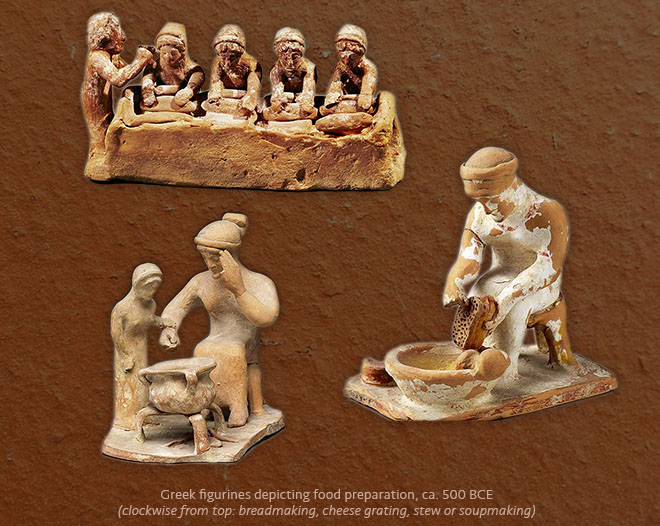
No class meeting this week. Enjoy your holiday and I will see you in Week 13!
Welcome to Week 12!
15 November 2021
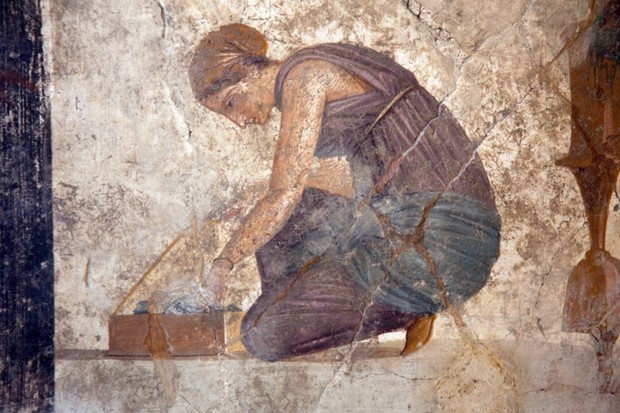
This week we’re attempting to get at the Roman sense of gender division and gender norms below the upper classes. How do you think things are different for women below the nobility?
What do documents like the Twelve Tables tell us about how genders and families related to each other? What’s your sense of what ideas the Romans in general shared when it came to the importance of women to the survival of Rome?
Looking forward to discussing all this with you in person on Friday. See you then!
Welcome to Week 11!
8 November 2021
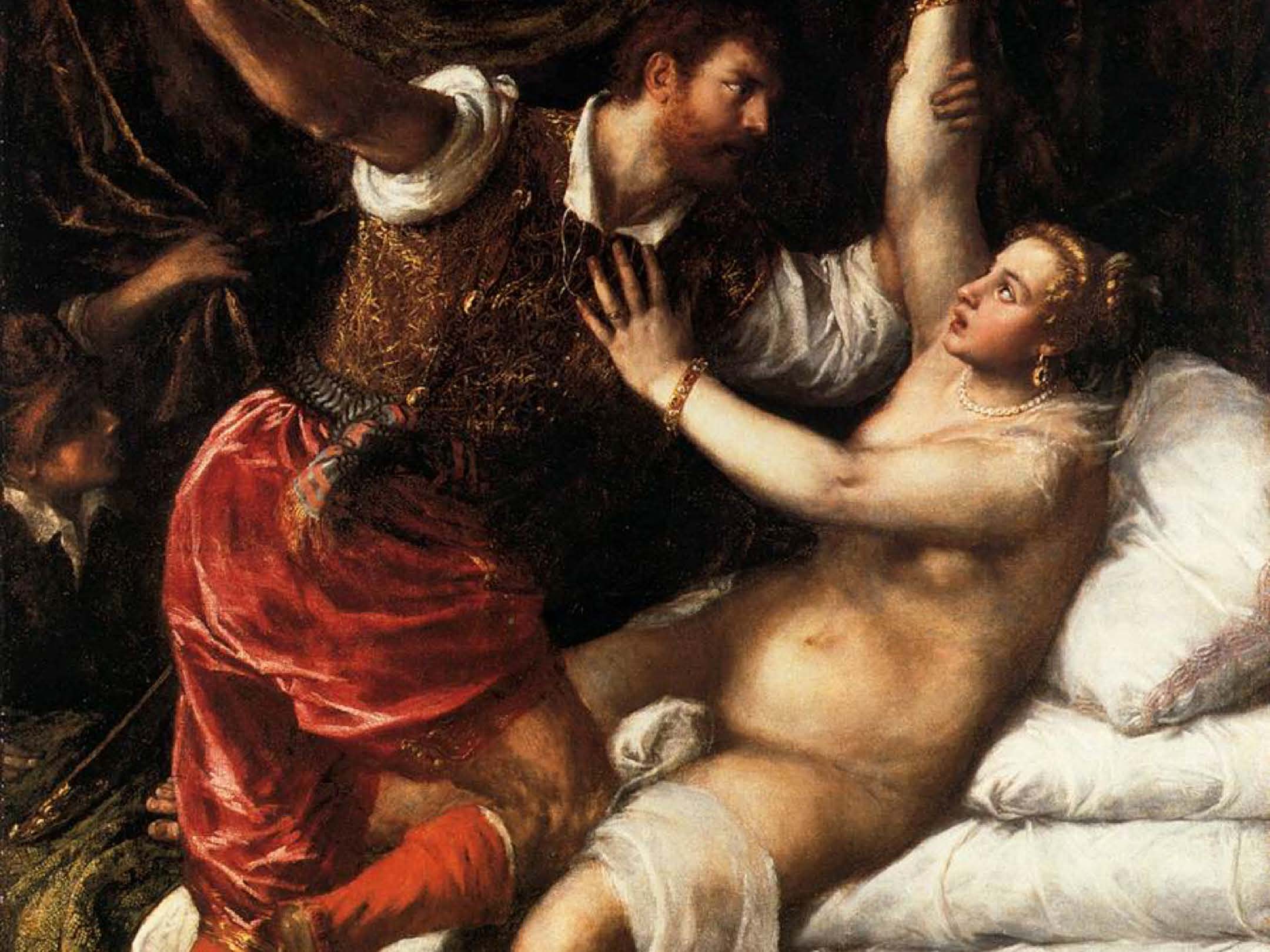
This week we’re starting with the Romans, whose approach to gender we’ll be discussing over the next three weeks.
The Roman perception of the maiden and the matron is very distinctive. What stands out to you about how the Romans understand the responsibilities of the maiden to Roman society? How does it fit in with ideas of gender we’ve studied so far?
The stories from Livy give women symbolic importance to the survival of Rome. What do you think these stories are telling us?
I’m looking forward to hearing the gender roles of men and of women in Roman society. See you in person on Friday!
Welcome to Week 10!
1 November 2021
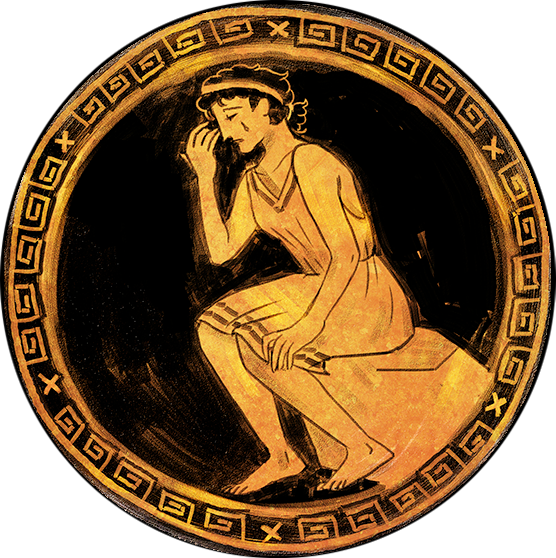
This week we’re talking about understanding gender in classical Athens through the mortal women presented in literature (as opposed to mythology), and toward that end we’re looking at two of the most potent female figures in all of Greek drama, Antigone and Medea. Both women are larger than life in very different ways. I really want to hear what you all thought while reading these plays.
What is it that Antigone is fighting for, do you think? What is Medea fighting for? What are the conflicts in these two plays really about, do you think? What insight can we derive from the memorable endings? Do Antigone and Medea have anything in common? What did you react to while you were reading these plays?
Medea is particularly shocking because of what she does and how it ends. Given what Pomeroy talks about and all our previous discussion, what do you think Euripides was trying to say to his fellow Athenians by telling this story? Let me know what you think about all of this.
Looking forward to discussing all this with you on Friday in person. See you there!
Note and reminders about the Images essay
27 October 2021
Here are a few brief reminders about the Images essay, which is due very soon on Friday, November 5.
- Watch the video. Make sure to watch the overview video, since that tells you exactly what I am looking for. It’s on the Images Essay page.
- Thesis statement. Make sure you have an introduction with a thesis statement (your argument asserting your position on the question/problem being addressed) and a body that described and discusses three examples from the sources supporting your thesis statement. For models and explanations on how to do this, see “Writing a Position Paper” (a.k.a. “The Elephant Pamphlet”), which is on the Resources page.
- Sources.
- For the museum option, if you can go to a museum in person and view the works directly that is what I strongly prefer, as this option is about your subjective reactions to experiencing the works you are writing about. Remember to choose two works that have the same subject (two little girls, two warriors, two Aphrodites) but from different times or places so you can talk about the implications of how the same concept was conveyed differently in different moments of the story of Hellas.
- For the film option, you need to write about the agenda of the filmmakers and the agenda of the authors of the primary source and how each is using an ancient culture to impress their own beliefs (the filmmakers’ and the authors’) on the audience. If you’re not sure about the primary sources for the film you chose, make sure to come to me and we’ll discuss.
- Requirements for all papers. You must adhere to the requirements for all papers (listed on the Essay Musts page). Not meeting the requirements for all papers will mean a lower grade.
- Template. There is an MS Word template already set up with some of the formatting I require on the Resources page. If you use Word I strongly recommend making use of this template.
- Late papers. As per the syllabus, late papers are marked down by ten points per class meeting, up to a cap of thirty points. Avoid this penalty and block out the time you need to prepare, write, and review your essay so that it can be submitted on time.
- BlackBoard. All essays are uploaded to BlackBoard. Look for “Upload Assignments Here” in the left-hand menu. Your essay needs to be uploaded as a Word (preferred) or PDF file attachment, not pasted in as text submission. If you use a browser-based word processor, you’ll need to download or export to a Word document and upload that.
I’m happy to discuss any aspects of your sources or the essay, so please come to me if there’s anything you’re not sure about. I’m looking forward to hearing your interpretations of your chosen depictions of the ancient world!
Any questions, let me know!
Welcome to Week 9!
25 October 2021
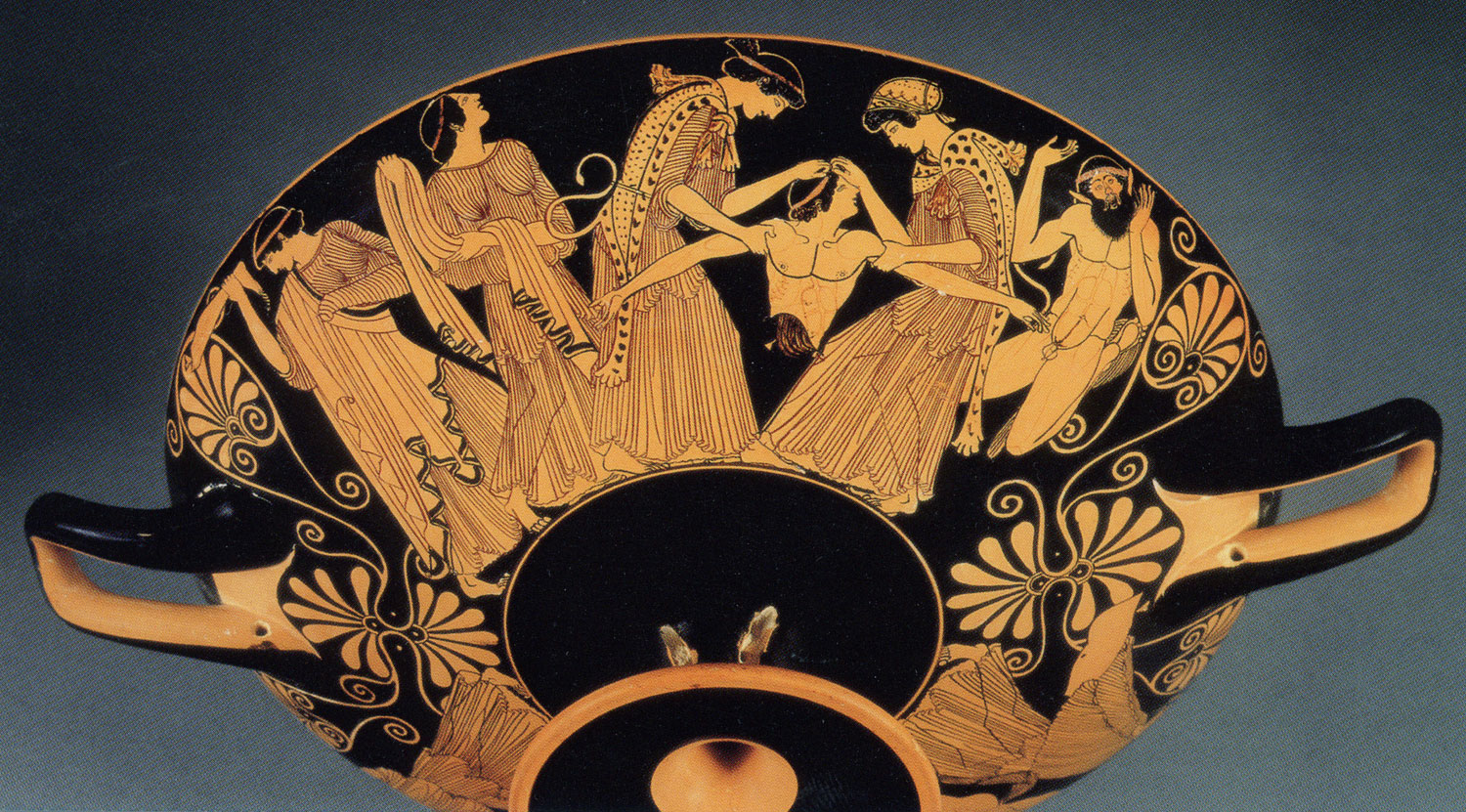
This week we’re trying to take a closer look at the nonpublic side of gender in classical Athens. What role do you think the hetairai really played in Athenian society? Why do you think we focus on them when discussing Athens? What’s your sense of how the Athenians dealt with private sexual conflicts within and between families—what situations stand out to you?
We’re also looking this week at Bacchae, in which a group of women rip a man apart. Why is he, Pentheus, ripped apart in particular? What is this story showing us—empowerment? Retribution? Male pig-headedness (or lion-headedness)? The Bacchic craze was something the Greeks valued—what was its importance, do you think? Within the play, what do you think Dionysos was trying to accomplish? What do you think Euripides was trying to accomplish in telling this story?
We’ve also got a little scene from the Adonis Festival. Is this just a bit of frivolity involving women checking out hot guys (a bit of reversal in Greek literature, but not unheard-of—remember Nausicaa and the beauty-enhanced Odysseus); or is there something more to the telling of this story?
We’re continuing with the in-person meetings this week, and it’s important that everyone attend these so we can have a good discussion and interaction. I’m looking forward to seeing you all on Friday!
Welcome to Week 8!
18 October 2021
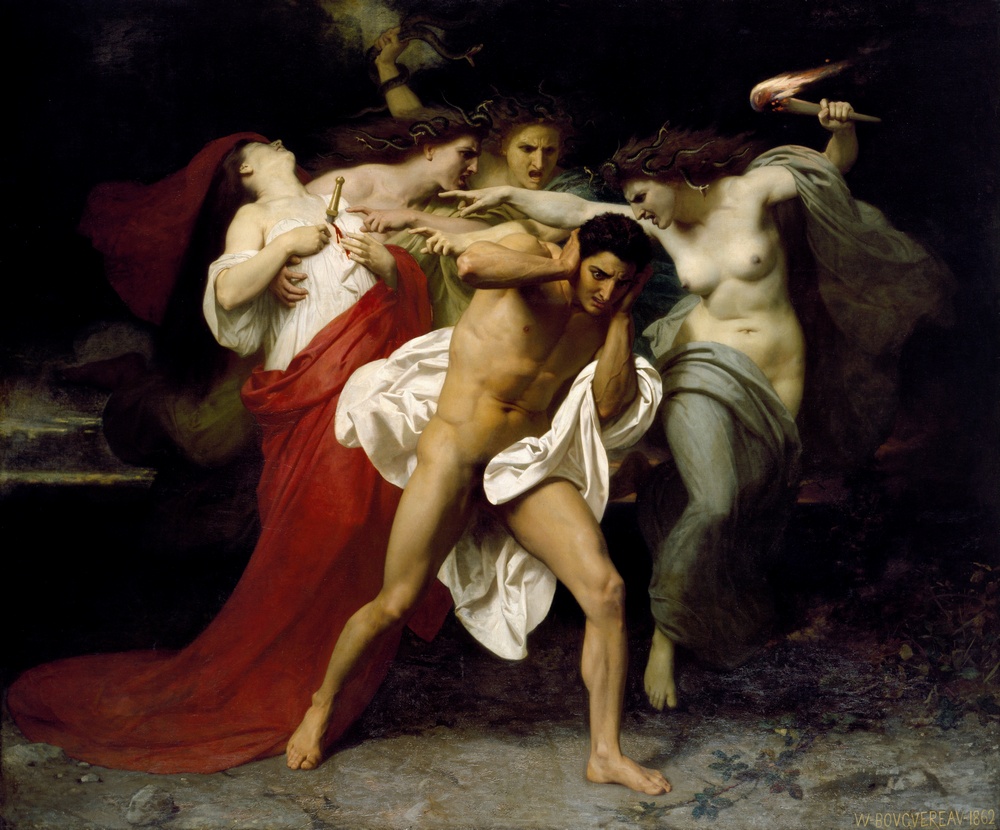
This week our main subject is to focus on women in classical Athens. This is a tough one, because the seclusion of women is a subject that draws a lot of emotional reaction and misunderstanding—and this is one of those topics where Pomeroy definitely has an axe to grind. The articles come into play here, too, especially the Walker article, which deals with some of the facts on the ground about seclusion. Where is Pomeroy coming from when it comes to women in Athens? Given our past discussions, what helps bring about this situation? And is it as bad as it seems to us, or is there more going on that what everybody traditionally says about it?
Also this week we’re looking at the Eumenides, part of the Oresteia trilogy by the tragedian Aeschylos. This is a great one for looking at gods and mortals and how they operate on their own planes. What do you think the play is saying about Orestes having killed his mom? How do the Furies come off, and how do they seem different from Apollo and Athena, who show up at the end? Why do you think the playwright has Athena say the things she does about her final decision? What do you think this play is really about?
Looking forward to discussing all of this in person with you on Friday. See you there!
Grading page fixed and updated
16 October 2021
The error that was causing the grading page not to display this week has been resolved, and the page has been updated with the assignments I have received to date.
I will catch up on my grading backlog as soon as I can. I appreciate your patience and will keep you updated on my progress.
Important update regarding Week 7
9 October 2021
Due to a family emergency I will be unable to participate in this week’s class meeting. Therefore, there will not be an official class meeting Friday morning, either in person or online. I’ll leave the discussion area up on the site and you all are welcome to gather informally and discuss the topics raised in this week’s lectures and videos at the usual time, but I won’t count this week’s participation toward your grade one way or the other.
Here’s how my absence will impact the rest of what’s going on in Week 7.
(1) Readings and lectures. Even though there will not be a discussion meeting, you are still responsible for the material in this week’s readings and video lectures, some of which will be covered on the Final Exam and, more importantly, will be a crucial basis for our exploration of Greek literature and heroines the coming weeks. For many of you this week’s content will be relevant to what you’ll be writing about in your Position Paper, as well.
(2) The Proposal. Your proposal will still be due via BlackBoard no later than Oct. 15. If you want to discuss topics or approaches with me I am happy to do so.
(3) Any presentations slated for Week 7 should still be posted to the discussion area and uploaded to BlackBoard as usual.
(4) Contacting me. I will have access to my Lehman email, so feel free to get in touch with me with questions about this week’s topics, the Midterm, or anything else. I’ll respond to questions in the evenings if not before.
I apologize for the short notice and the disruption to our normally orderly schedule. I’ll look forward to seeing you all for the resumption of in-person class meetings in Week 8.
Quiz #2 grades and markups posted
6 October 2021
The grades and markups for Quiz #2 are now posted. My apologies for the delay, and I’ll work on reducing the turnaround time on quiz grades going forward.
The good news is that the scores are quite strong for Quiz #2 and up from Quiz #1. My main advice for future quizzes (and your other written assignments) is to remember to be specific and give examples. Good luck!
In-person meetings
4 October 2021
Now that we are about to pass the full-vaccination mandate, I would like to transition back to in-person meetings. I think it makes sense to start with the meeting on Friday morning, October 15.
Feedback? I think it’s important if we’re doing in-person meetings to have as many students present as possible to ensure a good discussion, so let me know your reactions and if you think there might be concerns.
Welcome to Week 6!
4 October 2021
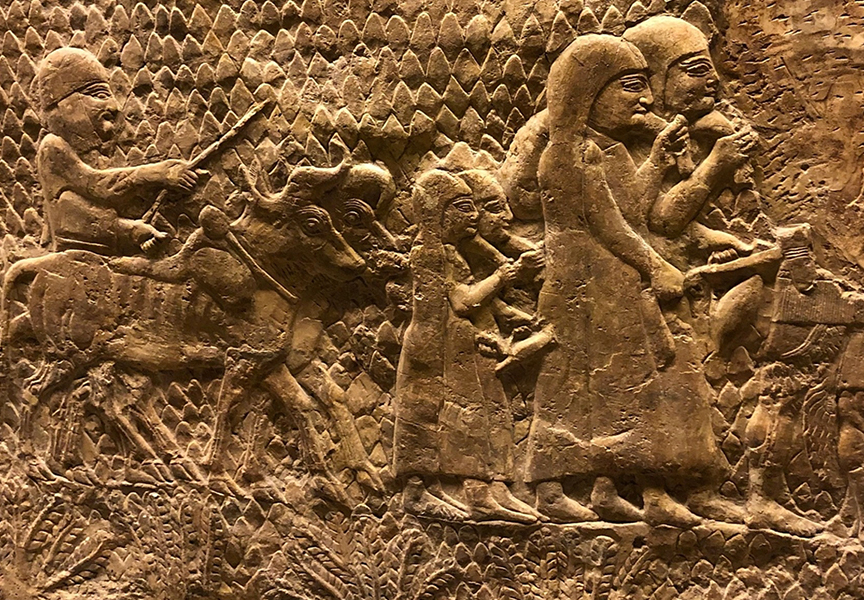
This week we’re stepping away from the Greeks for a moment to talk about the story of the Hebrews.
This is one of those cases where the backstory goes a long way in shedding light on specific and distinctive cultural norms. We’ve already seen how the Sumerians, the Egyptians, and the Greeks had different norms and values about women, mortality, and so on. But they all had two things in common: a homeland, and pagan gods that were rooted in the natural forces of that homeland. With the Hebrew tribes, we see cultural norms defined by exile, war, oppression, and more exile, and an ethnic and religious identity reshaped around a monotheistic god, rejecting paganism and any commonality with pagan peoples.
What do you think most affects their ideas about the role of women? What strikes you about the story of Esther? What kinds of women stand out in the stories preserved in Hebrew and Jewish history?
Looking forward to discussing this with you in our online meeting. See you Friday!
Reminder: The Proposal is due by Friday, October 15
4 October 2021
The Position Paper Proposal is due soon, on Oct. 15. This is a one-paragraph description of the topic you plan on writing about for the position paper due at the end of the semester, and the argument you think you’ll be making about that topic. This means you should be thinking about your topic NOW (right now!! ) so that you can start working out a statement of the problem and what your position/argument might be.
To start with, go to the Proposal page (under Essays) and read the requirements, and watch the Proposal overview video, which lays out exactly what I’m expecting when it comes to the proposal. I would also read the requirements for the Position Paper itself and watch the overview video for that (on the Position Paper page under Essays on the site) to get a sense of your long-term goal, but definitely read the Proposal requirements and watch the video for that now.
Once you’ve done that, I’m more than happy to discuss possible paper topics and thesis statements with each of you as we approach the proposal deadline. Once you submit your proposal, I’ll give you feedback on the feasibility of your topic and approach, possible ideas and relevant topics, and suggested resources so that you can progress to the next stage of researching the position paper itself.
Quiz #1 grades and markups are posted
27 September 2021
Quiz #1 has been graded, and the grades posted.
If you took the quiz, next to your grade you should see a PDF icon. If you open this, you will see the marked-up version of your quiz, as if I were handing it back in class. Attached to this is a page of notes on the quiz questions. The notes are not the “correct answers” but a rundown of the ideas that came up in the lectures and readings that are relevant to the questions.
On the Week 4 page you can now also view a quiz recap video. This is very important as I use these to emphasize the most important ideas and take-aways from the previous week’s topic, much of which will continue to be relevant in future discussions and assignments.
The first quiz is always an adjustment as we get used to the process and the kinds of questions I ask. Here I just want to note that being specific and using examples are vital to giving strong answers on the quizzes. For this reason it’s important to be prepared by watching the videos, doing the readings, and participating in and reviewing the class discussion. The latter especially is where I try to shine a light of key concepts and transformations, which is also the kind of thing that crops up in the quizzes. For this reason I strongly advise you to always take the quiz AFTER participating in, and reviewing, the class discussion. (I also advise taking the quiz soon after, while all the material is still fresh and marinating in your mind.)
Any questions, let me know!
Welcome to Week 5!
27 September 2021
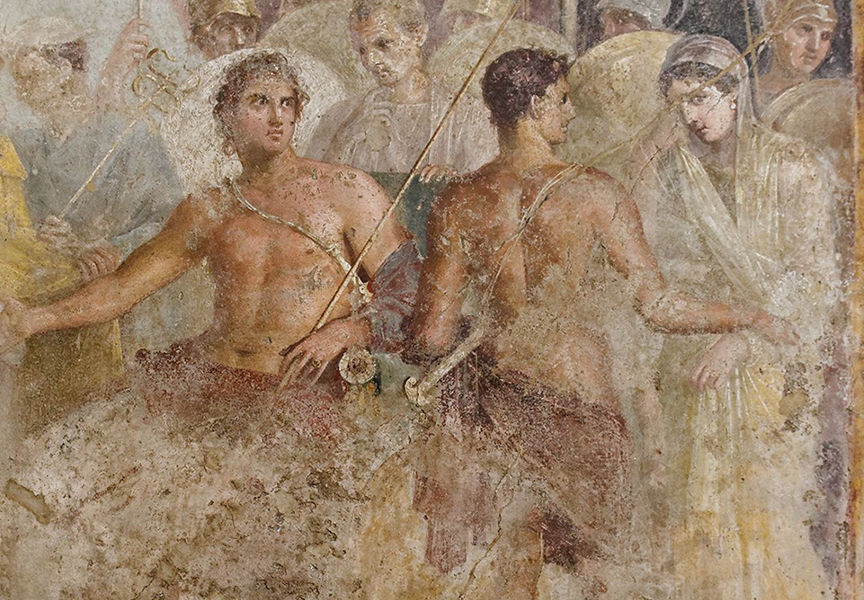
This week we’re talking about Homer, whose works are the portal to understanding how the Greeks thought about everything, including gender, since Homer’s works became the baseline for all Greek culture and all study of the Greeks. We’re reading Pomeroy’s analysis of how the women of the Trojan epic were presenting in Homer and perceived by the Greeks, but we’re also reading a few short sections of Homer himself to get a feel for how he talked about the male and female figures who shaped the outcome of the Trojan War in his Epic.
Women are important to Homer—even the war itself is made to be about a woman in Homer. How does Helen come across in these stories? Why do you think she was depicted as the impetus for the war? Do you see the women on the Trojan side (like Andromache, Hektor’s wife, and Kassandra) as being presented differently from the Greek women (like Klytaemnestra)? In the excerpts, how do you see Briseis, Nausicaa, and Penelope? What do you think Homer wanted to say about the mutual responsibilities of men and women in Greek society?
Looking forward to discussing all this with you on Friday in the online discussion. See you then!
Welcome to Week 4!
20 September 2021
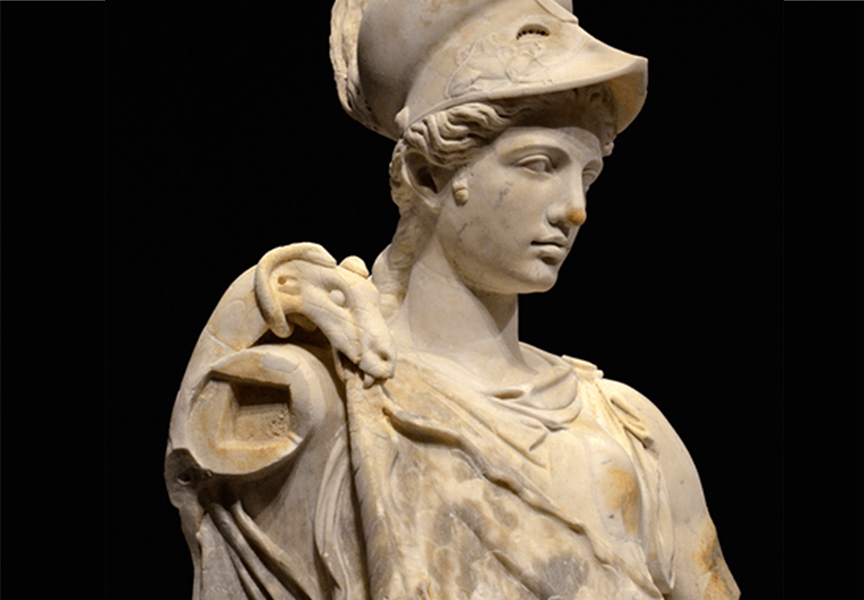
This week we’ve got a big topic: How gender plays out among the stories of gods and goddesses in the ancient world.
Here we zoom in on a key theme in this course, and in Pomeroy’s text: how goddesses are portrayed, as contrasts to human behavior and in contrast to the male gods. What stands out to you as the most defining characteristics of goddesses in mythology? What goddesses stand out the most to you, and what about them stands out? Remember, we’re trying to view these ideas from the perspective of people of the time. How did the peoples of these societies see a goddess as being different from a god?
Certain goddesses really stand out, like Athena (corresponding to the Roman Minerva). Why is Athena so special and unlike anyone else in the pantheon? Pomeroy talks about an array of Greek goddesses, and many of them seem to be very potent and distinctive in terms of personality and behavior. Why do you think these goddesses were described that way? Who stands out to you as intriguing, or unfairly overlooked?
Also, I want to talk about specific male/female pairings. How do the myths contrast Zeus and Hera? Or, going even further back, Chronos and Rhea?
And: the earth is associated with female divinities (Gaia, Demeter, Kore). Is that just an analog with the production of life, or is there more to it than that?
Looking forward to discussing all this with you on Friday in the online discussion. See you there!
Vaccination deadline to prevent deregistration
18 September 2021
I am reaching out today because Thursday, September 23 is the last day for students to get a one-shot J&J vaccine to fulfill CUNY requirements.
Women in Antiquity is designated a hybrid course, with mixed online and in-person activity. All students in hybrid and in-person classes have to upload their proof of vaccination documents by September 27. If this proof is not uploaded in CUNYfirst by that date, I am told that they will be administratively dropped from any hybrid and in-person classes. This has financial implications for students and can have implications for Financial Aid (if the student fall under 12 credits for the semester, i.e. under full time status).
Students have been informed of this policy through many e-mails and phone calls. However, instructors have been asked to reach out to students who might have missed the school’s attempts to disseminate this information.
In the School of Arts and Humanities, we still have about 33% of students in Hybrid and In-Person classes without proof of vaccination in CUNYfirst. Many of them may be in the middle of the vaccination process (between shots, or waiting for two weeks); we cannot see that. But some of them might have missed all of the announcements. If a student has not started the vaccination process yet, their last chance is to get the Johnson & Johnson vaccine by Thursday, September 23.
Note: I do not need or want to know your personal vaccination status. I also will not be able to do anything about registrations affected by this policy before or after the fact. What I want to make sure of is that all my students are aware of CUNY policy so that periodic in-person classes can resume after the Oct. 7 vaccination watershed.
Here are some helpful links:
The Lehman Gets the Vaxx site:
https://www.lehman.cuny.edu/coronavirus/vaccine-info/
A step by step guide for uploading the information in CUNYfirst:
https://www.lehman.edu/media/Lehman-College-Website/resources/documents/coronavirus/Vaccination-Verification-Guide-CUNY-Students.pdf
Here is a link to the Vaccine Finder Website:
https://www.vaccines.gov/results/?zipcode=10468&medications=784db609-dc1f-45a5-bad6-8db02e79d44f&radius=25&appointments=true
If you have further questions, check out the FAQs on the resource site (https://lehman.edu/coronavirus/#d.en.14994), or connect with a live agent through the chat bot on the Lehman site.
Welcome to Week 3!
13 September 2021
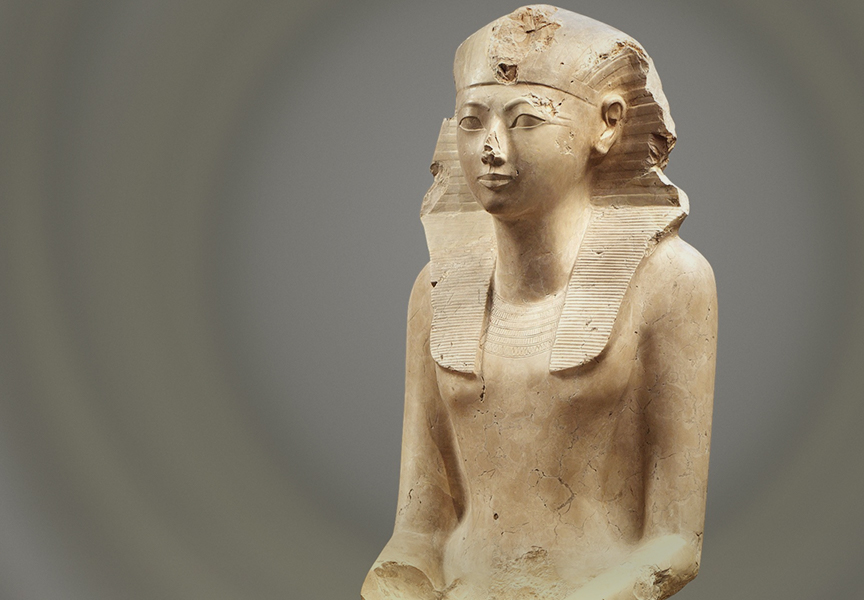
This week we’re talking about Egypt.
There’s a lot to discuss this week. Was Hatshepsut a fluke, or did she really represent something about women in Egypt? What do you think was most important in making Hatshepsut accepted as a ruler? Was her damnatio memoriae—her son’s destruction of her legacy—about female inheritance, or was something else going on? The articles give us a few more vantage points to talk about gender in Egypt. What do think we can say about how different things were for women in Egypt, and why?
With regard to the reading from Roehrig, there’s a “Note” button that gives some advice about approaching this book. It’s long, but it’s mostly pictures, and the tl;dr is, read the six articles, which are shorter than they seem, and skim the rest, which is mainly inventory. Look out for pictures that strike your imagination. What images of Hatshepsut stand out for you the most?
Looking forward to discussing all of this with you on Friday. See you then online!
Welcome to Week 2!
6 September 2021
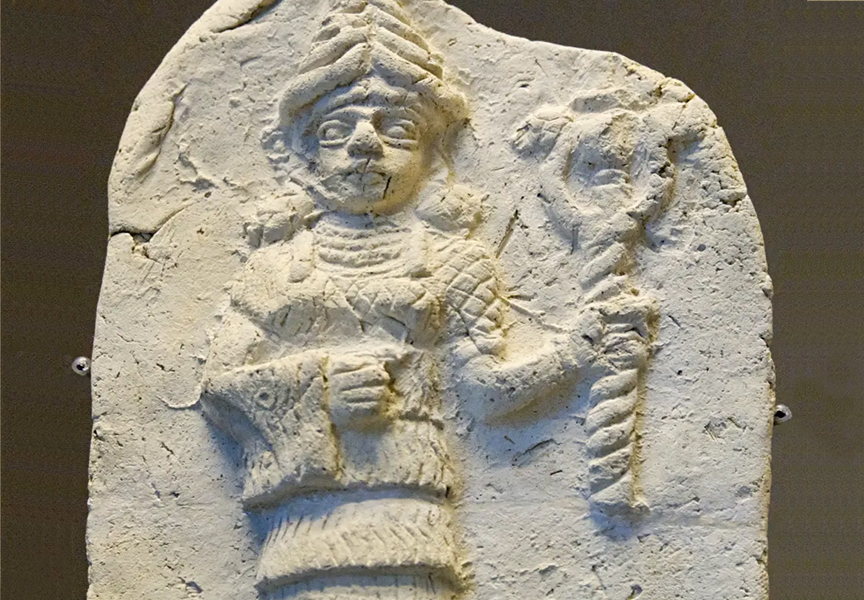
This week we’re talking about one of the oldest civilizations of the ancient world, the harsh lands of Sumer, and their most famous bequest to later generations, the Epic of Gilgamesh. We’re reading a few chunks from it, and although the protagonists of this story are two very manly men, in these passages we get three very vividly drawn women: Shamhat the prostitute, Ishtar the bratty goddess, and Ninsun, Gilgamesh’s mother archetype.
As we talk about this, I want to hear what stands out to you about these passages. How does the people’s anger at Gilgamesh relate to gender? Why is Shamhat written as being so critical to the story of Enkidu? And why do you think it’s important she’s a prostitute rather than another kind of woman in society? What role does Ninsun play in Gilgamesh’s story? What is Ishtar all about? Given what we see of other women in the Epic, do you think she’s being painted by her actions as a woman, or as a god? And on the testosterone side, what do you think the dudebro attitudes and goals of Gilgamesh and Enkidu tell us about how the author saw the differences between men and women within a community?
We had a great discussion last week, and this time we have some really meaty (or juicy, if you want vegetarian metaphors) stuff to discuss. When we get together this week, make sure to post your reactions to the videos and the readings. Make sure to post a question too. I especially want us to talk a lot about Gilgamesh and what it tells us. Also, I want to hear your reactions to the article you read. The discussion on this is very important, since only some of us will have read the one you chose. What was the author trying to convince you of? What did you think of his or her arguments, and the evidence used to support it? What insight does this give us into how the Sumerians thought about gender?
Looking forward to discussing all of this with you on Friday. See you then online! We’ll be meeting Friday at 9:30 a.m. in the discussion area of the Week 2 page. If you haven’t set up a Disqus account yet, please do so, and check with me if you have any questions.
No class meeting this week
30 August 2021
Just a reminder that there are no Friday classes this week. See you next week for Week 2!
Welcome to Week 1!
23 August 2021
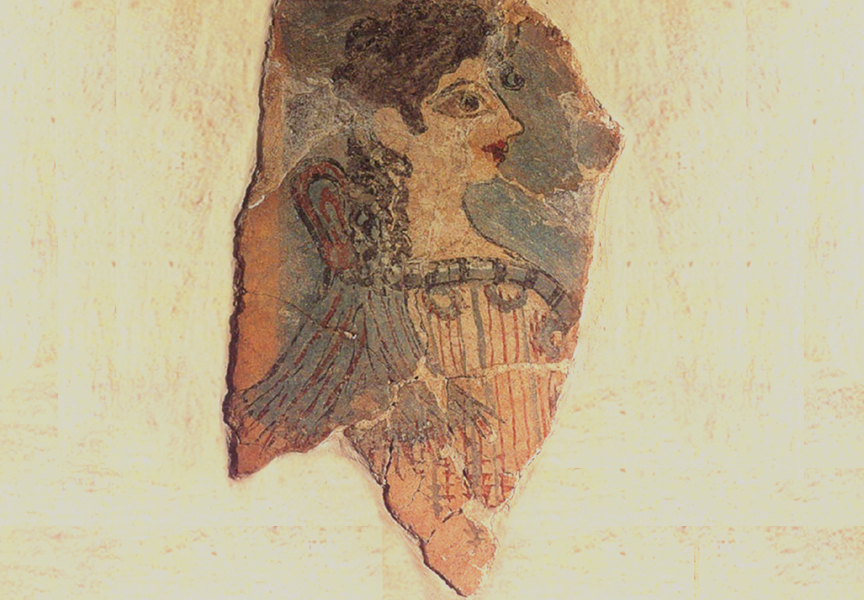
Good morning, and welcome to Week 1 of Women in Antiquity!
We’re just starting out this week, and I know some of you night not have the book yet. But this week’s in-person meeting and discussion is very important, as we’ll be setting out the basics for ideas we’ll be returning to over and over again. Make sure you watch the Welcome video, because it contains stuff you really need to know.
Our first class meeting. Our official meeting time is Fridays starting from 9:30 a.m. THIS week, the meeting is in-person in Carman Hall 210. I’ve sent out emails already about how the University’s mask requirement and vaccination mandate, and you’ve been receiving emails from the school as well. If you have questions about testing, vaccination, masks, and so on, please follow the links to the LC and CUNY covid/vaxx pages Announcements page.
Online meetings (starting with Week 2). Most weeks the meeting will be virtual. For these meetings, we’ll all be in the discussion area together from 9:30 onward on Fridays, interacting with everyone, discussing the week’s topics and readings, and responding to each others’ posts. We had great discussions in my fall, winter, and spring semester courses this way, with a lot of involved interaction, so I know there’s a real chance we can make sense of things together online as we explore the role of women in ancient societies every week. To post, you’ll need a Disqus account. Sometimes posts from new accounts get flagged by them as spam. I try to watch out for that, but if your comment is flagged, email me and I’ll release the comment and whitelist your account.
Sign up for your first “presentation”. You’ll notice that one of the assignments for the course is to take two of the articles we’re reading this semester, one from the first half of the course and one from the second half, and present them to the class in the online discussion area. This takes the form of a written discussion of the article, what you think of its arguments, and how it relates to the bigger issues we’re talking about that week. (The details of what I’m looking for are on the Essays page.)
What you need to do now is sign up for the first one. To do that, go to the course web page, enter the course, and click on the “Sign-up #1” button at the top of the page. The sign-up page has a list of readings. Pick one that seems interesting and then go to the bottom of the page in the discussion area to tell me which one you want.
Come to me with any questions! I try to make things as clear as I can, but I know that it takes a little acclimation. I want to help, so email me with any questions or issues. If any of you haven’t replied to my earlier emails letting me know I have the right address to reach you at, I’d be grateful if you did so now.
Looking forward to digging into gender in the ancient world with you all. See you Friday!
Office hours
18 August 2021
I’ve posted my office hours, which are after class on Fridays from 11 a.m. to 12 p.m.; office hours are virtual (via email) unless the class meeting that day is held in person, in which case I will be in my office, CA-292.
CUNY vaccination mandate
16 August 2021
Though most of our weekly meetings will be held online, our first meeting on August 27 will be held IN PERSON. That means that before that day, you need to make sure that you have proof of vaccination in order to gain physical access to the Lehman campus.
Vaccination is available through mobile vaccination stations situated at the Lehman and other CUNY campuses. For more information on the CUNY vaccine mandate for students, vaccination options, and verification, see the following links:
BlackBoard page available
2 August 2021
The BlackBoard page for this course is now live. Remember, we’re only using BlackBoard for uploading papers—everything else is here.
Site Map added
2 July 2021
I’ve added a Site Map page, offering you an overview of the full syllabus and easy access to any page in the course website. You can find it by clicking on the sign-post icon at the top right of every page. There’s also a link in the footer as well.
Welcome to Women in Antiquity (Fall 2021)
1 July 2021
Hi folks,
I’m looking forward to a great semester exploring how the very different cultures of the ancient world dealt with gender and its relationship with society and literature.
For the Fall semester, the course has been made hybrid. Most of the course will be online, including Friday morning class meetings using an online discussion forum; but a couple of Friday meetings will be in-person—including our first meeting on Friday, August 27. The dates for the in-person meetings are still being worked out, and I’ll update everyone as soon as the in-person schedule is finalized.
Right now, I need you to do three things.
First, look over the course web page, which will be our base of operations starting at the end of August. Watch the quick welcome and orientation video (also linked below). Look through each of the pages to see how the course will work, and make sure to click through to the weekly schedule pages to see how the readings, videos, and online discussions are set up. Any questions about how it works, please send me an email.
Second, get the books now if you can. A lot of you will be ordering books online, and you need to make sure you have the books and are ready to go when the course starts on August 27. On the “Books” page I’ve tried to give you lots of different options for getting what you need, but consider ordering now if there’s going to be any kind of shipping involved. (If you come across a legitimate online/e-text version of one of the assigned readings that’s not already listed, please let me know.)
Finally, please drop me an email so that I know I have a working email address for you. You can just reply, reply and say “hi”, or reply with a question or concern, but I want to make sure I can contact everyone. If you receive this email but there is an email address you prefer I use instead of this one, please definitely reply and tell me that.
Email me anytime with questions. I’m looking forward to starting our journey together.
Make sure you’re getting my emails
1 July 2021
If you haven’t been getting my emails, that means I don’t have a good email address for you (or they’re going into your junk folder). If this is the case, please email me and let me know what address I should use to reach you.